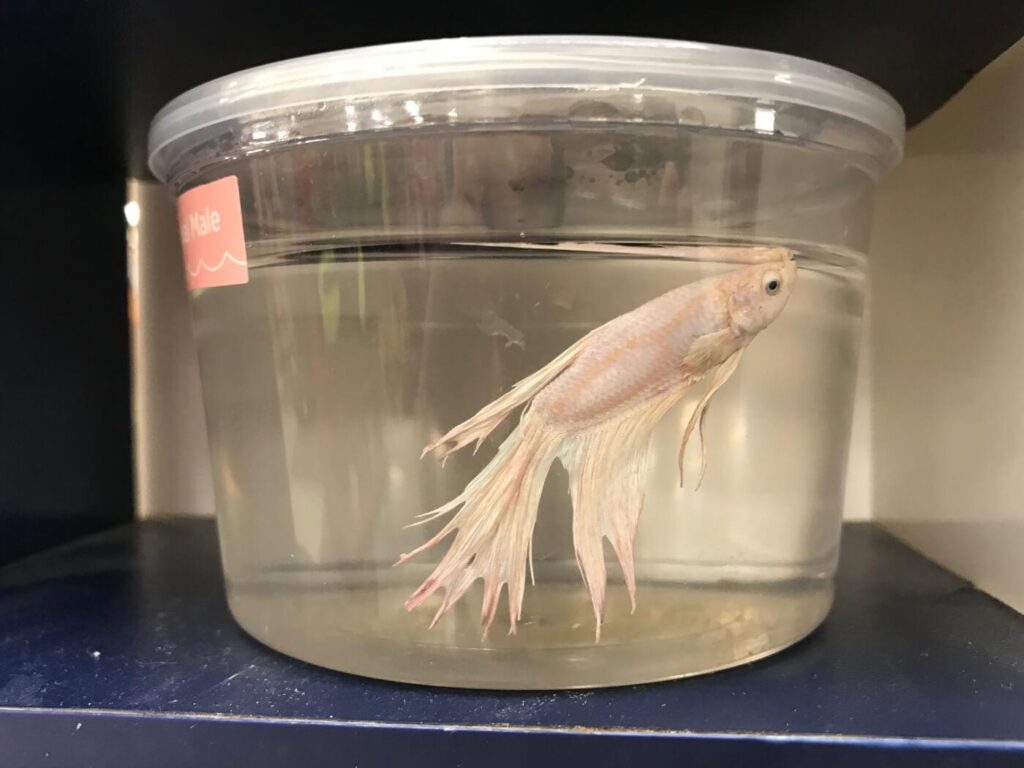Betta fish, also known as Siamese fighting fish, are popular pets due to their stunning colors and flowing fins. However, a common sight in pet stores is these beautiful creatures confined to small cups. While these cups might seem like an adequate temporary solution, they pose significant risks to the health and well-being of betta fish. This article will delve into the reasons why why are betta fish kept in small cups and why are betta fish sold in cups, highlighting the detrimental effects of such practices and emphasizing the importance of providing bettas with appropriate living conditions.
This article will explore the essential aspects of betta fish care, outlining the dangers associated with keeping them in small cups, discussing the necessary tank size requirements, and explaining the crucial role of filtration and water changes in maintaining their health. We will also examine the long-term health impacts of inadequate housing on these delicate creatures.
Betta Fish Care
Betta fish are tropical freshwater species that originate from Southeast Asia. They thrive in warm, clean water with ample space to swim and explore. While they are known for their solitary nature, they still require enrichment and stimulation to prevent boredom and stress.
Providing proper care for a betta involves understanding their specific needs and creating an environment that mimics their natural habitat. This includes maintaining the appropriate water temperature, pH level, and providing them with a suitable diet consisting of high-quality betta pellets supplemented with occasional treats like bloodworms or brine shrimp. Regular tank maintenance is also crucial to ensure water quality remains optimal.
Small Cup Dangers
Keeping betta fish in small cups poses numerous dangers to their health and well-being. The limited space restricts their movement, leading to muscle atrophy and reduced activity levels.
Ammonia Buildup
The tiny volume of water in a cup quickly becomes contaminated with ammonia and other harmful waste products from the fish’s excretions. This creates a toxic environment that can lead to severe health issues, including gill damage, skin irritation, and even death.
Stress and Injury
Confining a betta to a small cup also causes significant stress due to overcrowding and lack of hiding places. This heightened stress level weakens their immune system, making them more susceptible to diseases. Additionally, the cramped space increases the risk of fin nipping or tearing, as bettas may become agitated and lash out at each other or their surroundings.
Tank Size Requirements
To ensure the health and well-being of a betta fish, it is essential to provide them with a spacious tank. The minimum recommended tank size for a single betta is 5 gallons. This allows for adequate swimming space, reduces the buildup of harmful waste products, and provides a more natural environment for the fish to thrive.
Larger tanks are always preferable, as they offer even more room for exploration and enrichment. When choosing a tank size, consider factors such as the betta’s fin type (longer fins require more space) and any additional decorations or plants you plan to include.
Filtration and Water Changes
Proper filtration is crucial for maintaining water quality in a betta’s tank. A filter helps remove waste products, debris, and excess nutrients from the water, creating a clean and healthy environment for the fish.
Regular water changes are also essential to replenish lost minerals and remove any accumulated toxins. Aim to perform partial water changes (25-30%) every week using dechlorinated water. This helps maintain optimal water parameters and prevents the buildup of harmful substances.
Long-Term Health Impacts
Keeping betta fish in small cups can have severe long-term health impacts. Prolonged exposure to ammonia and other toxins can lead to organ damage, fin rot, skin infections, and a weakened immune system.
Betta fish confined to small spaces are also more prone to developing behavioral issues such as aggression, lethargy, and loss of appetite. These conditions can significantly reduce their quality of life and shorten their lifespan.
Conclusion
While why are betta fish kept in small cups and why are betta fish sold in cups may seem like practical retail choices, the consequences for these beautiful creatures are far-reaching and detrimental. Providing bettas with a spacious tank, proper filtration, regular water changes, and a stimulating environment is essential for their health, well-being, and longevity. By understanding the needs of these fascinating fish and advocating for responsible pet ownership practices, we can ensure that betta fish live long, healthy, and fulfilling lives.



